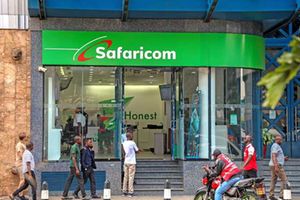
Costly electricity continues to be one of the biggest nightmares for businesses in Kenya.
A global industry group for mobile operators is pushing for preferential electricity tariffs for key telecommunications infrastructure such as tower sites in a bid to lower the operational costs of the telcos and boost quality of service.
The Global System for Mobile Communications Association (GSMA) says electricity supplied to more than 10,000 tower sites and other critical sites should be billed at between Sh9.24 per kilowatt hour (kWh) and Sh17.56 per kWh.
The proposal, if adopted by the government, could significantly lower the power bills that Safaricom, Airtel, and Telkom Kenya incur given that Kenya Power is the main source of electricity for their tower sites, base centres, and data facilities.
Costly electricity continues to be one of the biggest nightmares for businesses in Kenya and has been cited as a major driver behind the increasing adoption of alternative sources such as solar and biomass.
“There is an opportunity for consideration of a special electricity tariff category for telecommunication infrastructure, mainly tower sites to support telecom companies to continue offering ubiquitous and affordable ICT services in the country,” GSMA says in a report.
The push for cheaper tariffs could, however, rattle Kenya Power given that the firm is racing to grow electricity sales, boost profits, and ease the impact of big consumers who are opting for alternative and cheaper sources of power mainly through installing their own systems for solar and biomass.
GSMA says that 70 per cent of the tower sites are billed at a rate of Sh13.58 per kWh.
“The new tariff regulations ahead of the next power tariff review in 2026 could ensure that telecom towers are recategorised from the current small commercial category to the street light tariff.”
GSMA adds that a significant cut on the power bills has the potential to boost service delivery given that the infrastructure must be powered all through and that backup sources such as generators are more prone to breakdowns.
The lobby does not, however, provide estimates on the power bills that telcos foot for their tower sites, base centres, and data centres.
GSMA’s push sets the stage for telcos to join electric vehicles (EVs), firms operating in Special Economic Zones, and manufacturers as the band of consumers with preferential tariffs.
Kenya rolled out a time of use (ToU) tariff for manufacturers in 2018, offering industries up to 50 per cent discounts 2018 for use of electricity during off-peak hours.
GSMA’s push for lower tariffs for telcos is also primed as key given the shift to the fifth-generation network (5G) whose tower sites require more energy.





